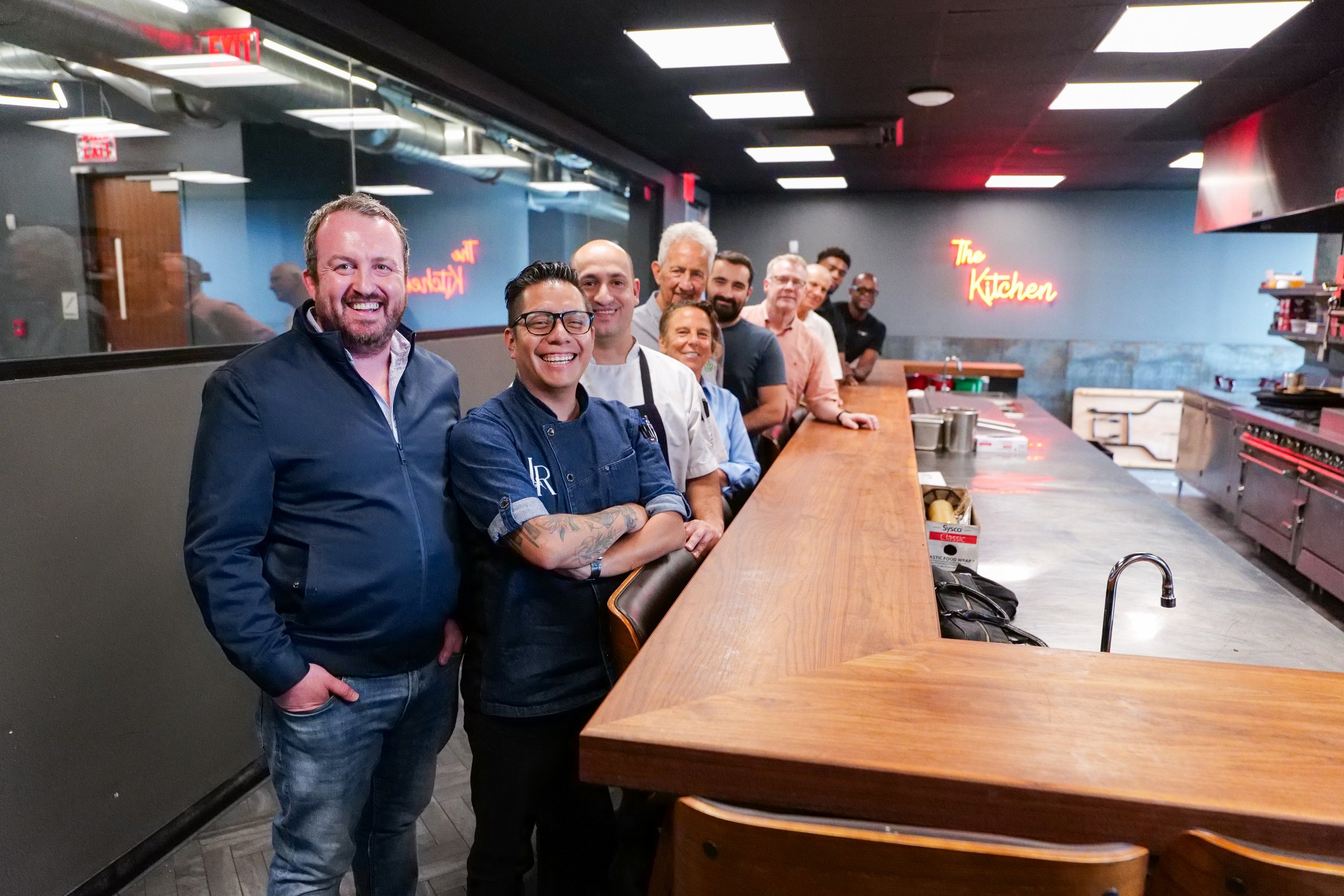
The Program
The TKA Program is a six month, intensive accelerator created to move your business forward. You’ve got goals and dreams and we’ve got a plan and system to help you get there.
How it works
Para recibir esta información en español por favor contacte a nuestro socio Building One Community o contáctenos aquí.
Application and Assessment
Participants apply by submitting an application form, one page business plan, participant agreement and W9. The first step is to schedule a tour during one of our regularly recurring informational sessions. Please do not apply or submit application materials until you have attended an information session.
Each participant and business is different. The amount of time spent in each phase is dictated by the readiness of the participant and the rate of progress. There is no defined time period for each phase.
Menu and Business Analysis
During your first weeks in the program you will submit menus to the culinary team and your business plan to the business team. In the kitchen, you will work on perfecting your recipes, understanding your costs and developing your processes. In the office, you will gain a better understanding of your plan and strategy, develop customer profiles and a launch plan, begin early marketing and communication plans and undergo a general assessment and development process.
Early Program Focus
During the first months in the program, the broader business plan is finalized, menus are developed and likely completed and the first service opportunities are presented. Starting small at first, real diners and potential future customers are introduced to the chefs and their businesses. As dishes, services and ideas are put the test, additional tweaks and improvements are made.
Middle Program Focus
Once the majority of menus and dishes are consistently delivered at a high level the focus turns to scaling up. During this phase, larger and larger events and opportunities are presented to the chefs. Participants are also encouraged to find and close opportunities on their own with their new menus and sales and marketing skills. Coaches and mentors stay involved at every step, further refining all aspects.
Late Program Focus
The later stages of the program focus on audience development, business development, more profitable services and a heavy focus on priming for a full future launch. On the business side, a focus on grants and fundraising is heavily present.
Graduation and Exit
At the conclusion of the program participants receive a certification, content package and the potential opportunity to continue building their business within one of partner spaces, if available.
Our Method and Philosophy
Every entrepreneur, chef and business is different. There is no absolute formula for success. Like all new businesses, startups and entrepreneurs, hard work, determination and resilience have an outsized impact on future outcomes.
That said, we acknowledge and understand the evolving dynamics of the restaurant industry. What has worked historically will not necessarily work any longer. In fact, that’s part of the reason our program exists.
We embrace a proprietary development methodology called SuperChef (please see graphic). This is a hybrid of private events, catering, private chef services and meal box and delivery services. These opportunities, combined with a commercial kitchen space, enable chefs to operate in a low-overhead, low-labor model. This can allow chefs to earn a living wage, build an audience and build a business while not taking on debt.
But again, this is not for every chef and following this methodology is not a requirement for applying to nor joining the program—it’s just an available playbook.
Terms
Participants sign an agreement upon starting the program. On average, participants spend five to ten hours per week on program activities, sometimes more. Any time that is considered “training” is not compensated, but participants receive a weekly food training stipend of $50 to cover food costs. Around the ninety day mark in the program, participants receive a stipend of one thousand dollars that is intended to cover incidental expenses such as transportation, equipment, etc. For any event or commercial activity that the chefs work, they are paid $35/hr (a cook in Fairfield County, Connecticut makes $18/hr on average). For any catering gig, private event, popup or similar activity, the chefs keep 100% of the profit from the event. For full terms and conditions, please see the participant agreement.
FAQs
-
The program is free, made possible by the Village Community Foundation and its network of funders and partners.
-
Cohorts start every three to six months. Timing is fluid and based on the opportunities available for the chefs to earn while they learn. As soon as we can open up slots, we do so.
-
TKA does its best to provide commercial and referral opportunities for our participating chefs and teams. While we cannot forecast nor guarantee any specific amount, our chefs, once they are through the first couple sprints in the program, are typically doing a paid event or opportunity every two to three weeks. With your new skills and plan you’re also encouraged to do your own networking, marketing and sales.
-
There is no exact rule that determines this. Our most successful chefs have a plan, cuisine and customer base established BEFORE they apply to the program. But each element is not necessarily a requirement. This is an accelerator after all. The more important determining factors are dedication, hard work and resiliency. This is a hard business, but we’re here to help!
-
There is an optional six month extension that must be applied for and granted. After one year, participants may seek additional development time through our partner network but this opportunity is not guaranteed.


